Renter sought compensation for mould but tenancy dispute board stuck her with the bill
'We had absolutely no way to defend ourselves,' says Cochrane resident
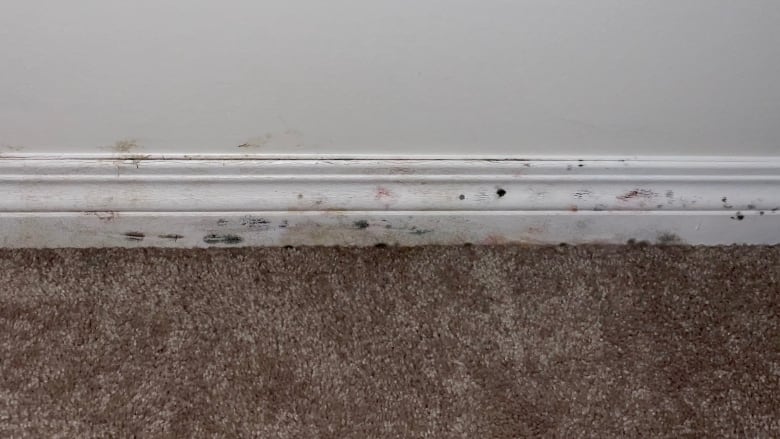
Cochrane resident Cecilia Hicks says her hands were tied when it came to proving the source of the mould that caused her to toss out most of her family's household belongings, suffer headaches and breathing problems, and undergo months of anxiety earlier this year.
As a result, Alberta's tenancy dispute board sided with the landlord and left her with the bill.
Hicks says the landlord accused her of keeping the humidifier in the home too high.She believed a structural issue such as a leak or an air flow problem was causing the mould.
She says the source, type and extent of the mould could have been determined by a mould expertbut the landlord refused to bring one in. And, she says, the experts wouldn't enter without the landlord's permission even if she agreed to pay.
"So we had absolutely no way to defend ourselves," said Hicks.
Hicks says she tossed out most of their mould-contaminated furniture, clothing and other belongings.
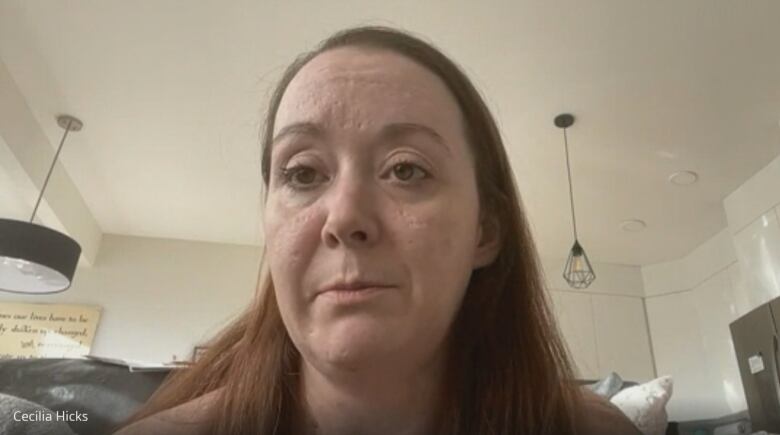
After she moved out, she took her case to the Residential Tenancy Dispute Resolution Servicein the hopes thelandlord would have to pay for damages.
But she lost her hearing. The dispute officer sided with the landlord.
CBC News reached out to her former landlord, who has since sold the property, but he declined to comment. He did send an email.
"With all due respect, I don't feel comfortable sharing any information with you as this is confidential information that was discussed between the two parties in the (board hearing)," he said in the email.
Was it the humidifier?
HIcks, her husband and three children started renting a two-storey home in Cochrane, Alta., in July 2022. Once it turned cold at the end of December, they started to notice a problem with condensation on the windows, which she says she didn't think much about except to turn off their humidifier.
But when mould sprouted up on the baseboards of her bedroom closet less than two weeks later in January 2023,she immediately contacted the landlord, who lives in Ontario.
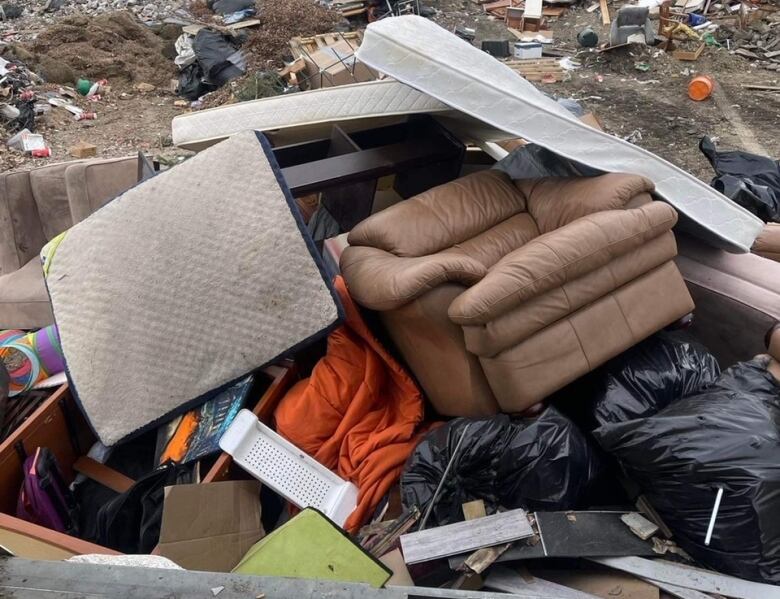
Hicks says the landlord brought in two roofing contractors to inspect the property.
She says the landlord told her the contractors didn't find any leaks but told him the home's humidifier was set too high.
One of the contractors issued a verbal report, according to the landlord. The other provided a written report, which was used as evidence in the hearing. Hicks shared the roofing contractor's report with CBC News.
It didn't specifically say the humidifier was to blame
Rather, it cited some airflow issues in the attic that it said could lead to attic rain. It also found some wet insulation in the attic. And it recommended these ventilation problems be fixed.
"We recommend following the guidelines for humidity in the home. At 30 C or lower, we recommend 15 per cent," it said.
"While there are a few things that can and likely should be done to control air flow, monitoring moisture within the living spaces is of the greatest importance."
Hicks says those words sealed her fate.
"That was the damning statement that meant that we were responsible for the entire thing," she said.
CBC News reached out to the roofing contractor. He said the humidity guidelines are on every report he issues as a reminder to homeowners. And he said every homeowner should be monitoring moisture especially if ventilation issues are identified, as in this report.
Hicks also told the landlord and the dispute officer that she had turned off the humidifier as soon as she spotted condensation, yet the moisture levels and the mould continued to grow.
In the board decision, the dispute officer writes: "It is nonsensical that the humidity levels would continue to rise if the humidifier was turned off and there was no evidence of structural deficiencies in the rental premises."
CBC reached out to a mould expert to see if the humidity could climb without the humidifier on.
"There could be a lack of airflow, there could be a potential leak somewhere. So yeah, for sure, it can definitely happen," said Adam Boccinfusoof BoccHome Inspections.
The dispute officer also said Hicks should have notified the landlord when she first saw condensation.
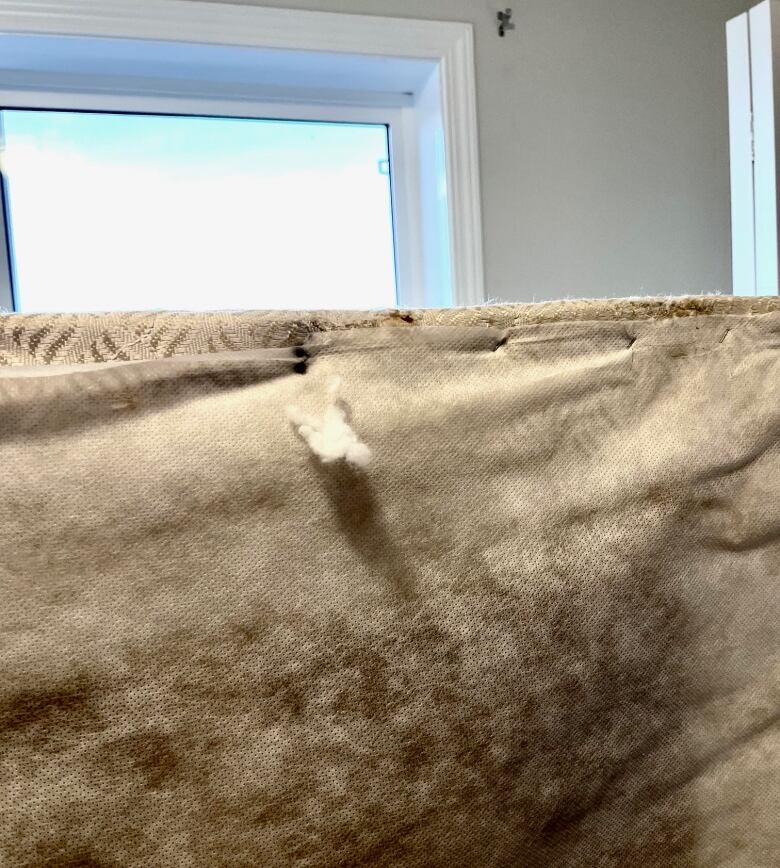
Either way, one solution
CBC News spoke to some mould remediation companies. Mostsaid theywill not enter a rental property to do an inspection without the landlord's permission because they didn't want the hassle.
"We feel that the owners need to be the ones that are directing it, they're the ones that would pay for it, and I mean, it's not cheap to do an air quality test," said Erich Krause with Mould Squad Ltd.
Krause says the least expensive air quality test, which can determine the type and spore count, is just under $1,000.
But CBC News did find one mould expert who said he would do an inspectionwithout a landlord's permission.
Boccinfuso said he frequently gets these kinds of calls.
"They know there's something going on, they're tired of feeling sick and it's come to the point where if they have to front the bill, then they're fronting the bill. They want to know what's going on and/or they're trying to gather as much information and/or proof as they can to go back to the landlord," said Boccinfuso.
Either way, both suggest tenants report their mould concerns to Alberta Health Services because the health inspectors don't require permission and can order the problem be rectified.
Hicks did reach out to an AHS health inspector in early March.
The report, shared with CBC News, found mould growing on the carpet, baseboards and windowsill, and said water infiltration had been identified. AHS ordered the landlord to clean the mould within seven days,but later told the landlord by email, referred to in the board hearing, that it could be addressed after the tenant moved out.
The tenancy board dispute officer also wrote that the AHS inspector would have ordered the home uninhabitable if it was that bad.
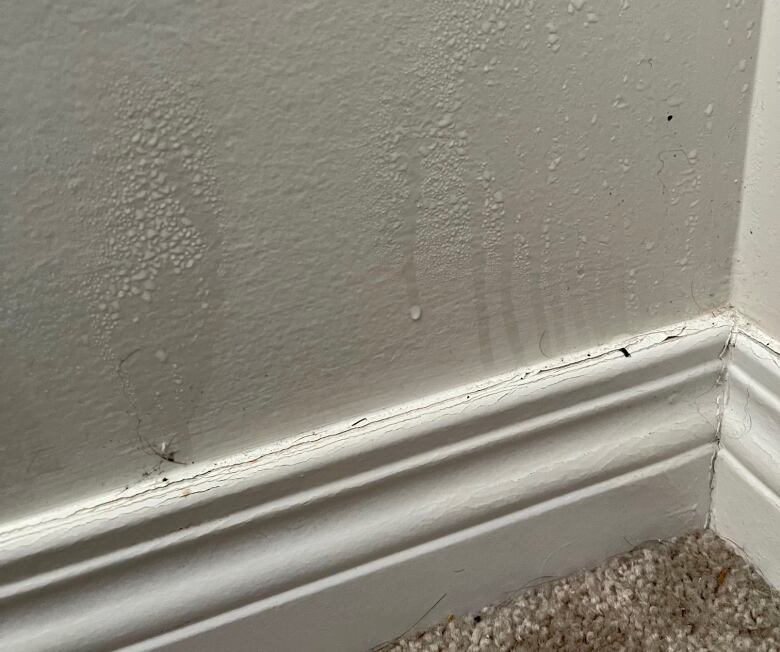
In hindsight
Hicks says looking back now she would not have not gone to the board because, despite having what she thought was a strong case, she failed to convince them.
She now wants others to be aware of the process she says was not easy to navigate.
She now has to pay the landlord $3,739 to cover the cost of remediation as determined by the dispute officer and she doesn't get any money to cover the cost of her lost belongings.
The dispute officer also ordered her to pay $2,500 for one month's lost rent, and the landlord was ordered to return Hicks's $2,500 damage deposit.
"It's traumatized us because we didn't do anything wrong. We know we didn't do anything wrong," said Hicks. "How much sense does that make that we would purposely do this to ourselves?"
Hicks is now requesting an administrative review of the decision.












_(720p).jpg)


 OFFICIAL HD MUSIC VIDEO.jpg)
.jpg)



























































































